News and Events
News and Events
News and Events
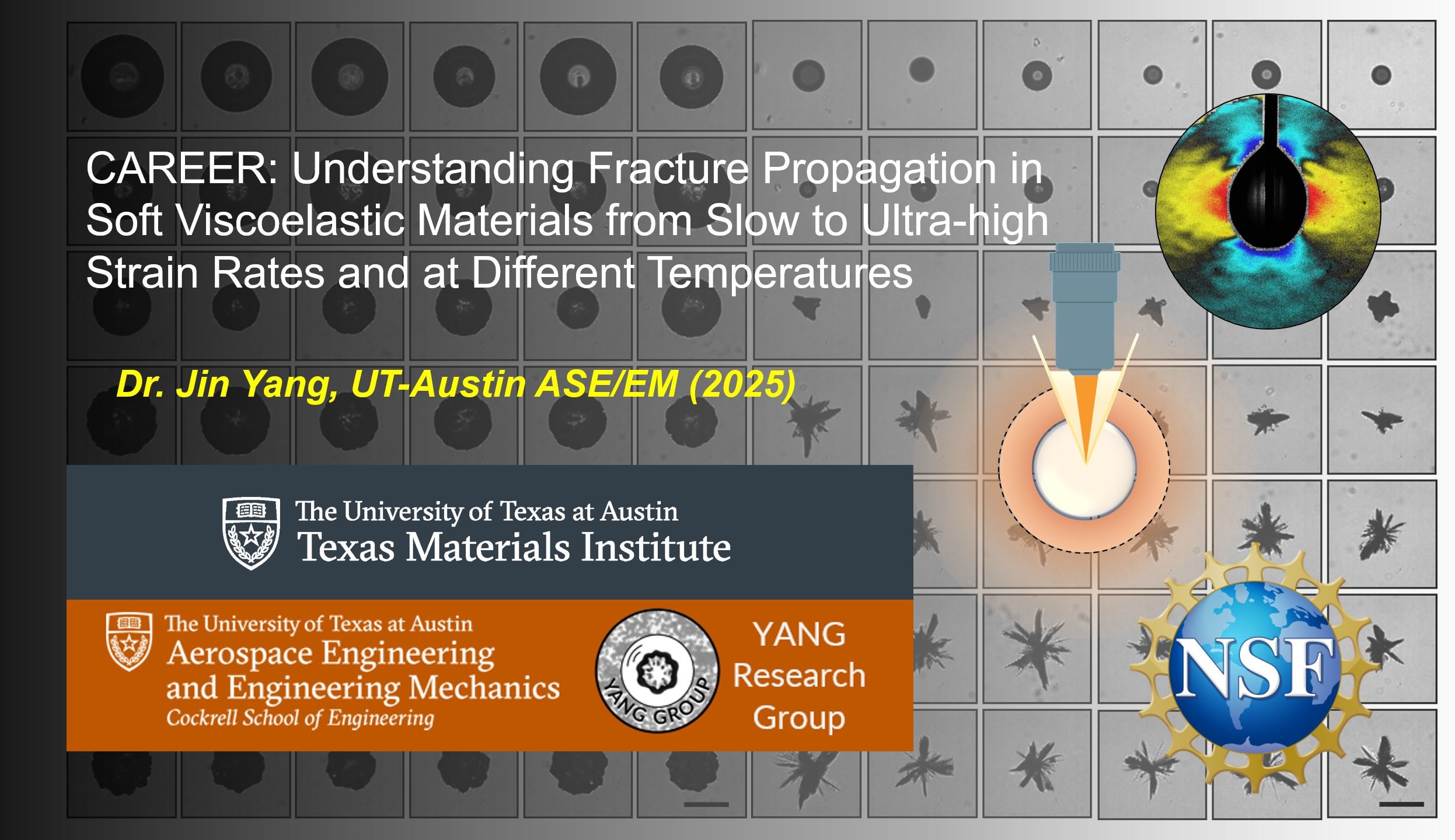
Dr. Jin Yang, Assistant Professor at the University of Texas at Austin and faculty member of the Texas Materials Institute (TMI), has been awarded the National Science Foundation (NSF) CAREER Award, one of the most prestigious honors for early-career faculty in science and engineering. This five-year award, totaling approximately $650,000, will support Dr. Yang’s research on the fracture and material failure behavior of soft viscoelastic materials such as polymers, hydrogels, and biological under different loading rates and temperatures.
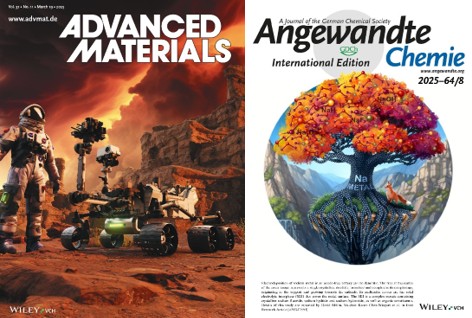
A group of researchers, led by David Mitlin and Yixian Wang, have recently published impactful research in Advanced Materials and in Angewandte Chemie, both articles making the journals’ front cover.

The Materials Science and Engineering (MSE) program is celebrating the remarkable achievements of its graduate students, who were honored at the TechConnect World 2025. This international recognition highlights the innovative research from Jiazheng Bao, Pablo Vidal, and Ming-Feng Hsieh, who have each made significant contributions to the field of materials science
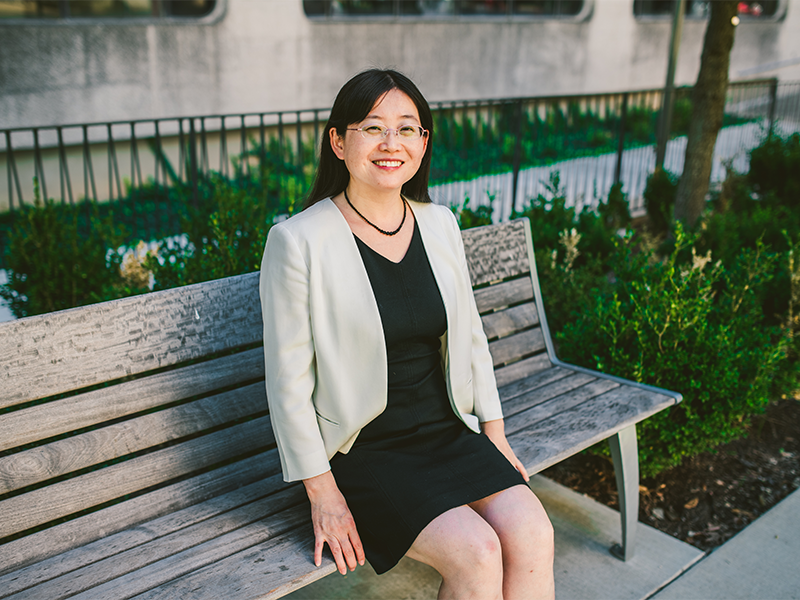
We are thrilled to announce that Dr. D. Emma Fan has been elected to the American Institute for Medical and Biological Engineering board of directors, a prestigious position voted on by the AIMBE Fellows—an esteemed group of approximately 2,000 members within the society. Dr. Fan’s election marks a significant achievement and reflects her dedication and contributions to the field. She looks forward to contributing her expertise and collaborating with fellow board members to drive the continued advancement of medical and biological engineering!

Dr. Deji Akinwande's research group in collaboration with ETH has reported a significant contribution to the field of materials science with the publication of a review article in Nature Materials, one of the top journals in the field.

Dr. Donglei Emma Fan from the Walker Department of Mechanical Engineering and Texas Materials Institute, has been inducted into the 2025 Class of Senior Members of the National Academy of Inventors, a prestigious honor recognizing her significant contributions to innovation and technology.
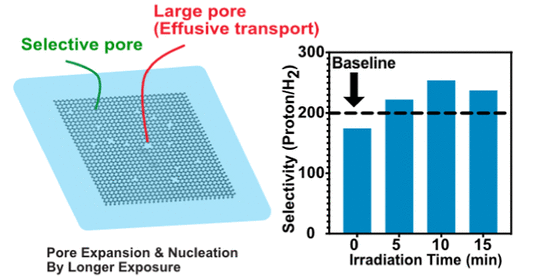
Dr. Deji Akinwande’s research group has just published new research in ACS Nano. The team developed a novel method using UV-Ozone to create precisely engineered defects in graphene membranes. This breakthrough solves a major challenge in ultrathin hydrogen fuel cell membranes, improving their performance without affecting the material’s strength or stability.
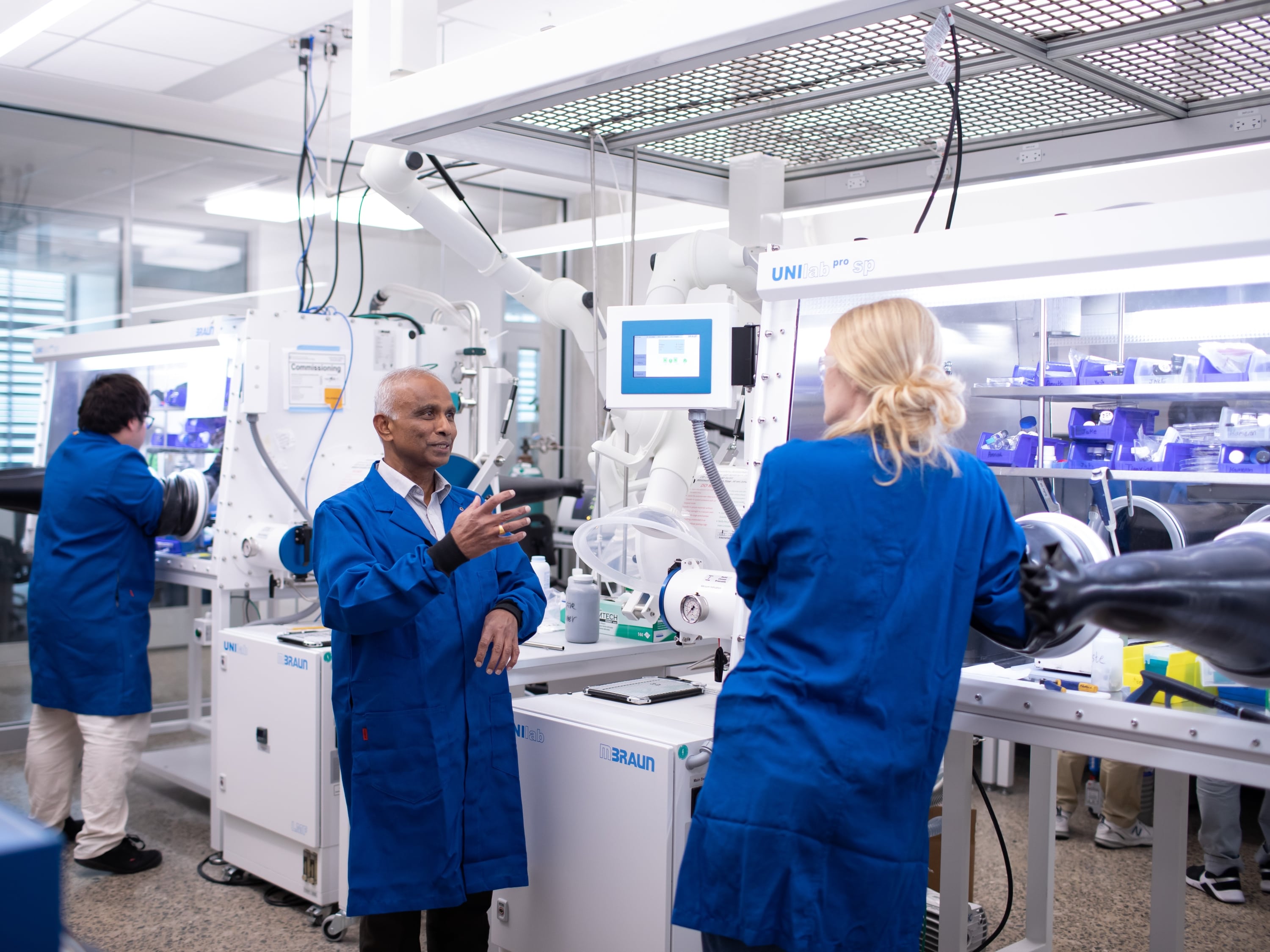
Nickel’s role in the future of electric vehicle batteries is clear: It’s more abundant and easier to obtain than widely used cobalt, and its higher energy density means longer driving distances between charges.

An international research team, led by scientists from The University of Texas at Austin, has unveiled a groundbreaking double moiré system made of four graphene layers. In this innovative structure, the top and bottom pairs form small-twist-angle bilayer graphene, while the middle interface is characterized by a large rotational mismatch. Fabricated using opto-thermoplasmonic nanolithography, this system introduces a new platform for exploring independently tunable flat bands in twisted bilayer graphene (TBG) structures.

Dr. Deji Akinwande, Professor at The University of Texas at Austin, has made a notable contribution to the field of semiconductor physics with his latest publication, “The quantum limits of contact resistance and ballistic transport in 2D transistors” in Nature Electronics.

